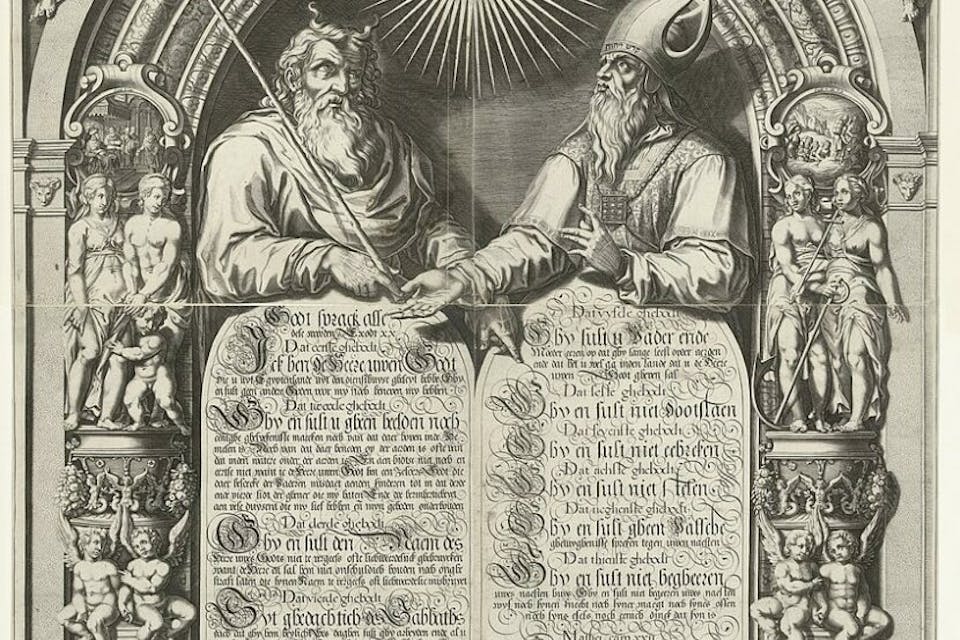
February 12, 2025
Did God Give Moses Ten Sayings, Ten Commandments, or Just Ten Things?
Neither Jewish nor Christian traditions call the Decalogue by its biblical name, but the phrases they choose reveal something about their different approaches to divine law.
This week’s Torah reading centers on the story, told in verses 2–14 of the twentieth chapter of Exodus, of the giving of the Ten Commandments at Mount Sinai. Why is it then that Hebrew, through which this story was transmitted to the world, does not speak of Sinai’s “commandments,” its mitzvot, but rather of its “sayings,” its dibrot?
Or, to reverse the question: why, when Hebrew says there were ten “sayings” at Sinai, do English and other languages say there were ten “commandments”?
Aseret ha-dibrot, “the ten sayings,” is not a phrase found in the Bible, in which the Ten Commandments are referred to as aseret ha-d’varim. This term occurs not in Exodus 20, but further on in the biblical text, in Exodus 34 and Deuteronomy 4, both of which feature retrospective summations of Sinai’s events. As translated by Robert Alter’s The Hebrew Bible, the passage from Exodus 34 reads (the bracketed additions are mine):